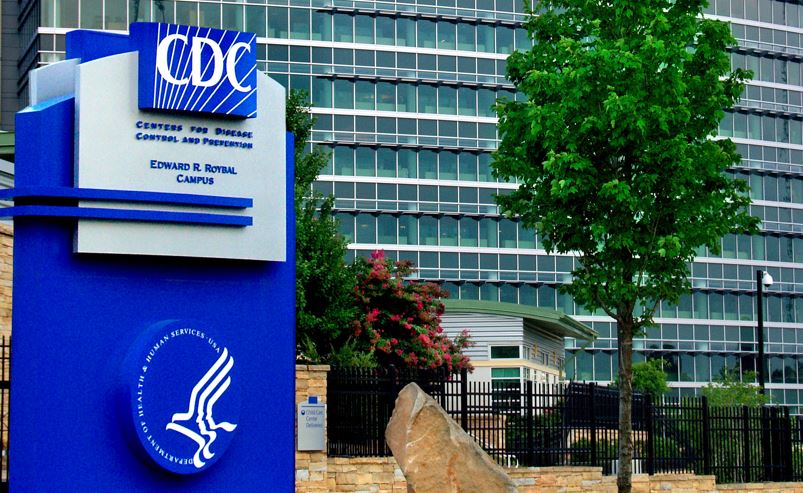By Bob Blancato for RealClearHealth
As the U.S. has surpassed a once unthinkable number of one million deaths associated with COVID-19, there is no question that the demographic most impacted by the pandemic is older adults who are aged 65 and older.
An analysis by the Associated Press shows that 3 out of 4 COVID deaths were older adults and a recent New York Times analysis showed that older Americans were hit much harder than other age groups during the Omicron surge.
And according to the Centers for Disease Control and Prevention (CDC), the number of deaths among people over age 65 is 97 times higher than the number of deaths among people age 18-29.
But we also must remember there are preventable diseases other than COVID that cast a heavy burden on the older population. At the top of that list is pneumococcal disease. Pneumococcal disease hospitalizes approximately 150,000 people in the U.S. each year, and the fatality rate from pneumonia and its complications is highest among those who are age 65 and older.
Older people in the U.S. have been the most willing age group to be vaccinated against COVID with 95 percent of Americans aged 65 and older having received at least one dose compared to 78 percent of those aged 18-24.
However, challenges remain in ensuring that there is access to vaccines both for COVID and other preventable diseases that older adults are more vulnerable to contracting, including pneumococcal disease. There are viable solutions that if implemented could go a long way to help fix this issue.
Support Conservative Voices!
Sign up to receive the latest political news, insight, and commentary delivered directly to your inbox.
First, the CDC must focus on the older population in a meaningful way. In the last year, advocates for older adults have urged quick and decisive action on recommendations for newly available pneumococcal vaccines. Approved last summer, it took until late January for the Advisory Committee on Immunization Practices (ACIP) to act.
Despite the CDC’s statements that the new recommendation was issued to streamline and simplify the guidance as to who should get the latest vaccines, the action that was taken was confusing at best, for both providers and patients and did nothing to clarify who needed one of these updated vaccines and when. In fact, it serves to prevent the 60 percent of older adults who were smart enough to get a pneumonia vaccine from getting a newer improved version.
ACIP has indicated over the course of several meetings since that they will go back and re-examine the evidence and come back with an updated recommendation, but there is no definitive timetable for that work.
NANASP and our partner organizations continue to urge action on the adult pneumococcal vaccine clarification and access at ACIP’s upcoming June meeting. Despite outreach to multiple ACIP and CDC representatives, we have yet to hear if this will be on the coming agenda.
There is good news in the sense that more vaccines to help prevent other diseases are on the horizon, but that is even more of a reason to ensure that clarity and common sense prevail in ACIP and the CDC’s work. We will continue to push for this clarification until ACIP finishes the job they’ve started.
RELATED: $163 Billion of COVID Unemployment Money Either Stolen Or ‘Misspent’
Relatedly, lawmakers in Washington, D.C. can help expand and bring equity to adult vaccines by passing the Protecting Seniors through Immunization Act.
This legislation will end the disparities that exist among different types of vaccines and the price that seniors pay out of pocket to receive them. Currently, vaccines that fall under coverage of Medicare Part B require no out of pocket co-pay requirement, while vaccines that fall under Medicare Part D can cost patients $100 or more.
You don’t have to be a public health expert to guess what those differences amount to—the vaccines with no cost sharing are utilized far more often that those that require an out of pocket spend.
With people living longer than ever, and with the population of adults aged 65 and older expected to double in the U.S. over the next two decades, it’s critical that we set the course for healthy and successful older adults by implementing clear, decisive policies and vaccination recommendations and expand affordable access to immunization.
Syndicated with permission from Real Clear Wire.
Bob Blancato is the President of Matz, Blancato and Associates. In that capacity, he serves as the National Coordinator of the bipartisan 3000-member Elder Justice Coalition, the Executive Director of the National Association of Nutrition and Aging Services Programs and National Coordinator of the Defeat Malnutrition Today coalition. Bob has long been recognized as a national advocate with policy expertise on behalf of older adults.
The opinions expressed by contributors and/or content partners are their own and do not necessarily reflect the views of The Political Insider.

